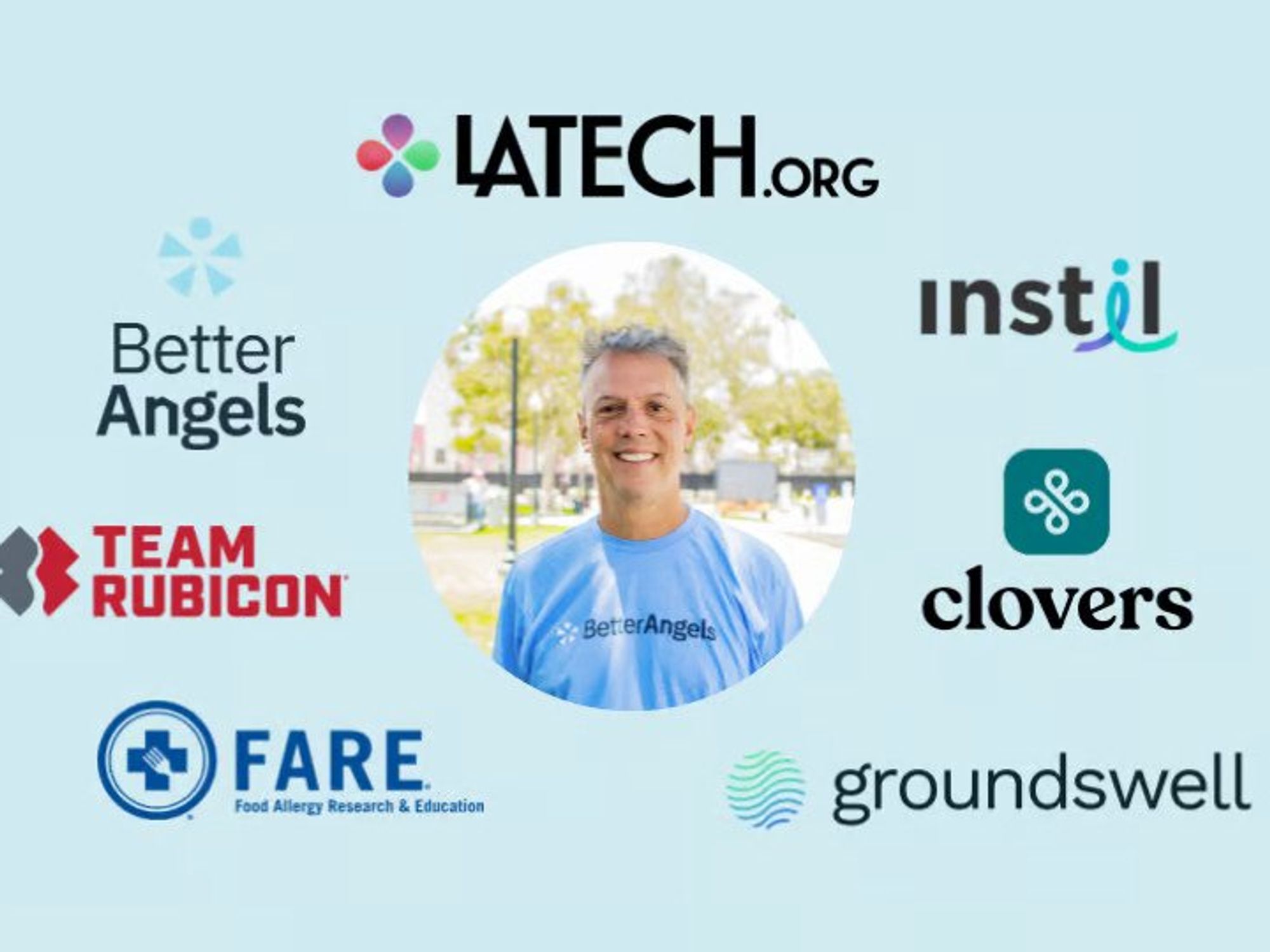Adam Miller's Second Act
Christian Hetrick is dot.LA's Entertainment Tech Reporter. He was formerly a business reporter for the Philadelphia Inquirer and reported on New Jersey politics for the Observer and the Press of Atlantic City.

This is Part II of our deep dive on Adam Miller, one of LA’s most successful (and philanthropic) tech entrepreneurs. When we left off Adam’s story last week, he had just sold his Santa Monica-based HR tech company Cornerstone OnDemand for $5.2B in 2021.
(If you missed Part I last week, you can find that here.)
After 20 years of company building and an exit like Cornerstone’s, most of us would take a deep breath and think about retirement, or at least a very long vacation. But Adam Miller is not a guy who sits still. He embarked on Act II of the Adam Miller story. You can think of his second act in two parts: Social Impact and Entrepreneurship.
Social Impact
As early as college, Adam began work on homelessness fundraising and advocacy, which has remained a core area of focus to this day. While at Cornerstone, Adam prioritized serving on the boards of several nonprofits rather than sitting on corporate boards (as many other prominent CEOs do). Most notably, for nearly a decade, Adam was chairman of Team Rubicon, a veteran-led organization focused on disaster response. Team Rubicon has led over 500 operations in response to events like the devastating 2010 Haiti earthquake, Hurricane Sandy, the war in Ukraine, and many others. Team Rubicon is now one of the largest disaster relief organizations in the world, with over 160,000 volunteers, and hundreds of thousands of disaster victims served. He also helped create FARE, the world’s largest food allergy nonprofit.
Now that was all during his tenure at Cornerstone. After leaving, Adam stepped on the accelerator in his nonprofit work. Adam and his wife Staci dived deep into the mechanics of nonprofits. How were they structured? What is the state of the art? How can we most effectively translate dollars into results?
They found a few things, but two of the most important were:
- There had been little innovation in the space for years.
- Most effective charitable organizations were integrated across multiple dimensions from grant giving, to direct on the ground action, to political advocacy, to social impact investing.
Put a pin in 1, but based on 2, Adam and Staci founded 1P.org (1P stands for One Planet), which has dedicated its efforts to addressing intractable problems in our society. 1P.org has built concentric circles of focus from local (homelessness) to state-level (workforce development) to national (gun safety) to global (climate change), and operates different organizations attempting to solve each problem.
Most relevant to our LA community are the organizations focused on homelessness and workforce development, Better Angels, and LA-tech.org, respectively.
Better Angels’ mission is to end the epidemic of homelessness in Los Angeles by unlocking the power of the LA community. The organization is tackling homelessness from every angle, including providing micro-loans to prevent vulnerable Angelenos from becoming unhoused, creating an affordable housing REIT to build housing, and developing technology to better meet unhoused individuals where they are. To learn more or get involved with Better Angels, click here.
LA-tech.org is a nonprofit coalition of LA’s top tech companies built to expand economic opportunities for LA’s underserved communities. Adam conceived of LA-Tech’s core initiative following the murder of George Floyd: finding internships for 1,000 LA students of color at LA’s great tech companies. People thought he was crazy, but after two years, the organization has passed 950 internships and is now setting its sights on 1,000 new internships per year. To learn more or host interns at your company, click here.
As if all this philanthropic activity isn’t enough to keep one person busy, Adam has gone back to the world of entrepreneurship. Remember we said that during his research, Adam found nonprofits hadn’t seen much innovation in years?
Entrepreneurship (Again)
Adam is back in the founder/CEO seat. His new company is called Instil, and the company’s goal is to bring the tech infrastructure for nonprofits into the modern era. Instil is a mobile-first SaaS product that gives nonprofit operators visibility into donations, community, membership, volunteers, and data. The company is a for-profit business focused on nonprofit impact and has raised funding from top investors like LA-based Greycroft, Threshold, USVP and Bessemer Venture Partners.
So are we finally done cataloging Adam’s second act, with a multitude of nonprofit boards, running a full nonprofit himself, and starting a new venture backed software business? Of course not.
Adam is also incubating, advising and supporting additional startups where he serves as Executive Chair, including Groundswell, the “Robinhood of philanthropy,” and Clovers, a company reinventing the interview process. In addition, he continues to invest in early stage companies through 1P Ventures.
So how does Adam keep all this straight?
According to Adam things are easier today than they were in the Cornerstone days.
“Cornerstone was very complex - it had many different businesses, and by the end, I was spending 70% of my time on the road, traveling. Today we have amazing tools. I run everything with Zoom, Slack and Evernote. It also helps that I’ve gone through every stage of a company. I make decisions faster. It’s easier to raise money, easier to hire. I can do things in a fraction of the time.”
For the rest of us mere mortals, all we can do is watch with our jaws on the floor and hope to make a tenth of the impact that Adam has made and continues to contribute.
Christian Hetrick is dot.LA's Entertainment Tech Reporter. He was formerly a business reporter for the Philadelphia Inquirer and reported on New Jersey politics for the Observer and the Press of Atlantic City.



 Image Source: Revel
Image Source: Revel
